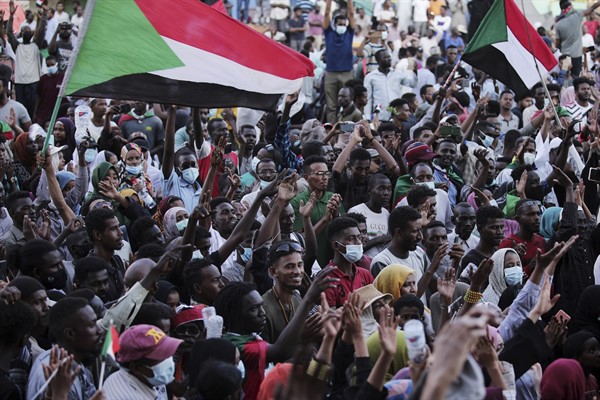In a brazen attack on Sudan’s democratic aspirations, the country’s military chief, Gen. Abdel Fattah al-Burhan, overthrew the civilian government on Oct. 25. The coup ended a fragile power-sharing agreement between security officers and a civilian coalition known as the Forces for Freedom and Change, or FFC. The two sides had been on a collision course since they formed an interim government in August 2019, which was meant to pave the way to democratic elections following the ouster of dictator Omar al-Bashir earlier that year.
Under the transitional charter governing the partnership, the 11-member Sovereign Council was supposed to serve as the country’s chief decision-making body, while delegating executive power to a civilian Cabinet. However, the transition was undermined by infighting between the two sides of the government, with the FFC attempting to dilute the military’s dominant influence over Sudanese politics and the economy. Burhan seemed to fear that if he stepped down from the Sovereign Council, as he was supposed to do in the coming months, then the military would lose control of the country. So instead, he annulled the partnership, dissolved the interim government, placed Prime Minister Abdallah Hamdok under house arrest and jailed some of his former Cabinet ministers.
The power grab should be understood as nothing more than a desperate attempt to preserve the junta’s economic power, as well as the legal immunity that senior military officials enjoy as sitting members of the government. This became clear when Burhan dissolved two civilian committees upon consolidating power. The first had been tasked with confiscating assets and funds stolen by Bashir’s cronies. In April 2020, the committee announced that it confiscated some 5,000 acres of residential land, millions of acres of agricultural land and numerous companies. However, the committee’s mandate threatened core patronage networks within the military.

